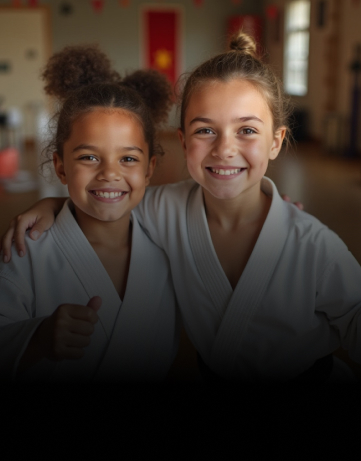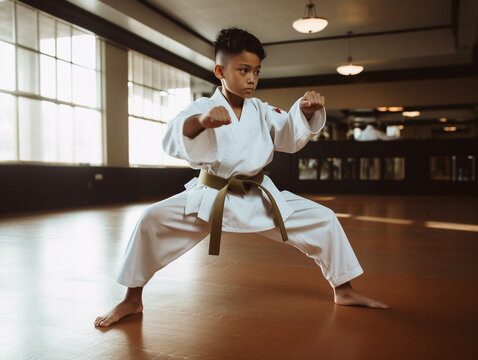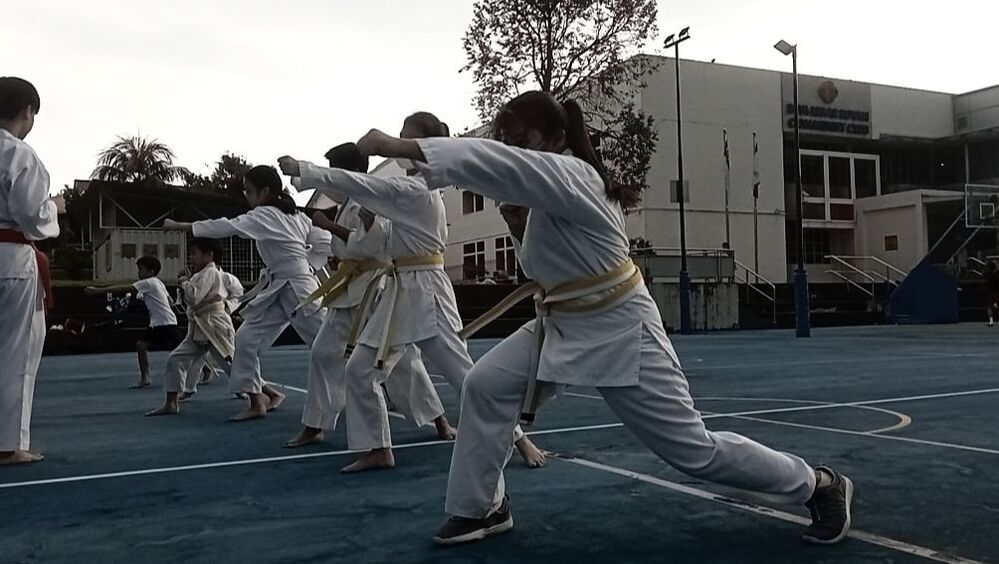Legacy Martial Arts – Building Stronger Kids and Families Through Martial Arts
Wiki Article
How Martial Arts for Children Can Increase Self-confidence and Technique in Youthful Martial Artists
Karate for kids provides an unique opportunity to construct confidence and self-control in young martial artists. As they learn new methods and face obstacles, they not just get skills yet likewise develop a solid feeling of self-regard. This organized setting urges them to value the trip of improvement. Just how does this training equate into their everyday lives? Discover the much deeper links that make karate more than simply a sport.The Significance of Self-confidence in Youth Growth
Self-confidence is a vital foundation in childhood development. When you support your kid's self-esteem, you empower them to face difficulties, take dangers, and reveal themselves easily. Children with self-confidence are a lot more prepared to check out brand-new tasks and social circumstances, which can cause long lasting relationships and valuable experiences.Encouraging your youngster to get out of their convenience zone promotes strength. They find out that failing isn't completion however rather a tipping stone to success. By celebrating their accomplishments, despite how small, you assist them acknowledge their abilities and worth.In this journey, assistance and favorable reinforcement from you play a vital function. Whether it's with appreciation or simply being present, your participation increases their confidence. As they grow, this self-assurance becomes a lifelong possession, equipping them to browse both obstacles and possibilities with a strong feeling of self.Just How Martial Arts Educates Technique and Emphasis
Karate assists you build technique and emphasis through its organized training program. As you practice mindfulness during each session, you'll discover to focus much better both on and off the mat. And also, establishing and accomplishing objectives in karate strengthens your ability to stay dedicated and mindful.Structured Training Regimen
While you involve in karate training, you'll quickly discover how a structured program imparts technique and focus in young practitioners. Each class adheres to a particular format, including workouts, strategy practice, and sparring. This uniformity shows you to commit and respect the process to improvement. As you find out types and methods, you develop a feeling of duty for your very own progress.The structured environment motivates you to set objectives, whether mastering a new belt or improving a kata. You'll discover that staying concentrated throughout courses and drills hones your focus. The discipline you cultivate in martial arts prolongs beyond the dojo, positively affecting your schoolwork and day-to-day routines. Each session reinforces the value of devotion, helping you grow into an extra self-displined person.Mindfulness in Method
As you exercise martial arts, you'll locate that mindfulness becomes an important part of your training. Each action requires your complete interest, aiding you remain concentrated on the present moment. You'll learn to ignore diversions and focus on your breathing, activities, and purposes. This heightened awareness sharpens your reflexes and enhances your discipline.During sparring or forms, you'll discover the significance of being psychologically present - Karate Salisbury MD. You'll notice how this emphasis not just boosts your strategy however additionally develops your confidence. By exercising mindfulness in martial arts, you cultivate persistence and durability, necessary characteristics that prolong beyond the dojo. In this means, martial arts instructs you to harness your mind, helping you establish a regimented method to challenges both on and off the mat
Setting Goal Techniques
Establishing goals in karate isn't almost earning belts; it's an effective means to cultivate discipline and emphasis. When you set specific, possible targets, you produce a roadmap for your development. For instance, rather than simply intending to boost your kicks, attempt focusing on grasping a certain technique monthly. This approach maintains you inspired and engaged.Breaking down bigger goals into smaller, convenient actions assists you track your progression and celebrate tiny victories along the means. Whether it's developing your position or enhancing your sparring endurance, every goal reinforces your dedication. As you achieve these objectives, you'll develop self-confidence in your skills and create a solid feeling of technique that prolongs beyond the dojo into daily life.Structure Strength With Martial Arts
Fighting style, specifically karate, supplies kids an one-of-a-kind opportunity to develop strength in a supportive atmosphere. In courses, they face obstacles that press their limits, whether it's understanding a new method or competing with a partner. Each problem, like a missed kick or a lost suit, becomes a chance to learn and grow.As they exercise, children discover to welcome pain and keep trying, even when points get difficult. They find that failing isn't completion; it belongs to the journey. This attitude aids them recover more powerful, not simply in the dojo, however in everyday life.With each obstacle they get over, your youngster develops confidence in their ability to take on obstacles, fueling their determination. With karate, they'll recognize that strength isn't simply regarding physical strength; it has to do with psychological grit and perseverance, equipping them to face whatever life throws their way.The Function of Respect in Martial Arts Training
Regard is a fundamental concept in karate training, promoting a society of self-control and friendship amongst students. When you tip onto the dojo floor, you're not simply finding out strategies; you're also finding out to appreciate your trainers, peers, and the art itself (Karate Salisbury MD). Bowing at the beginning and end of course isn't just a procedure; it symbolizes your acknowledgment of others' efforts and dedication.As you establish common regard, you'll discover it boosts your discovering experience. You'll listen more diligently to your instructor and gain understandings from fellow trainees. This setting motivates positive objection and assistance, permitting everyone to expand together.Moreover, respect grows self-discipline. Identifying the worth of effort and humbleness aids you remain focused nfl tom brady on your training. In turn, this respect translates right into your daily life, boosting your communications and connections outside the dojo. Via karate, you learn that regard is important for individual development and area structureAttaining and establishing objectives Success in Martial arts

Social Skills and Team Effort in the Dojo
While training in the dojo, children naturally create essential social abilities and synergy capabilities. As they practice along with peers, they find out to interact successfully, share room, and assistance one an additional. Each course offers opportunities for collaboration, whether it's during partner drills or group exercises. This teamwork promotes relationships and develops a sense of belonging, making the dojo a nurturing environment.Kids also obtain beneficial dispute resolution skills. When they come across difficulties, such as differences during sparring, they find out to browse these scenarios constructively. They practice persistence and empathy, recognizing that everyone has different strengths and weaknesses.Moreover, taking part in team activities cultivates a feeling of liability. You'll see your youngster discovering to depend on teammates and take duty for their role in a team. These experiences not only improve their martial arts journey however additionally outfit them with social tools they'll carry into other areas of life.
The Long-Term Perks of Martial Arts Beyond Childhood
As kids mature and move into adulthood, the have a peek at this website benefits of karate extend much beyond the dojo. You'll locate that the technique and focus found out through martial arts can equate into your expert and scholastic life. Establishing and achieving objectives in fighting styles cultivates a solid job principles, which can push you to succeed in any type of endeavor.Moreover, the confidence obtained from competing and mastering strategies can boost your self-worth, assisting you deal with obstacles head-on. This strength ends up being important as you encounter the unpredictabilities of adulthood.Additionally, the social abilities created through synergy and camaraderie in the dojo can lead to better connections in both personal and specialist rounds. You'll find out to communicate successfully, resolve conflicts, and construct a supportive network.Ultimately, karate shapes not simply experienced martial musicians, but all-round individuals all set to tackle the globe.Regularly Asked Questions
What Age Is Ideal to Start Karate for Children?
You can begin martial arts as very early as age 4 or 5, but it usually depends on your child's maturity and rate of interest. Locating a class that fits their age and energy level makes a huge distinction.Exist Any Type Of Wellness Conveniences From Practicing Karate?
Yes, exercising karate deals numerous health benefits. You'll boost your adaptability, control, and stamina while enhancing cardiovascular physical fitness. Plus, it boosts emphasis and psychological wellness, making it an amazing choice for general physical and mental health and wellness.How Commonly Should Kids Attend Martial Arts Classes?
You should motivate your youngsters to go to karate classes at least 2 to 3 times a week. Consistency helps them learn methods efficiently and create abilities, making their experience extra satisfying and gratifying in the lengthy run.Can Karate Assist With Handling Anxiousness in Children?
Yes, karate can help take care of stress and anxiety in children. It instructs emphasis and self-control while offering a safe electrical outlet for power. You'll discover your youngster expanding a lot more tranquil and certain as they practice on a regular basis.What Equipment Is Needed for Kids Starting Karate?

Report this wiki page